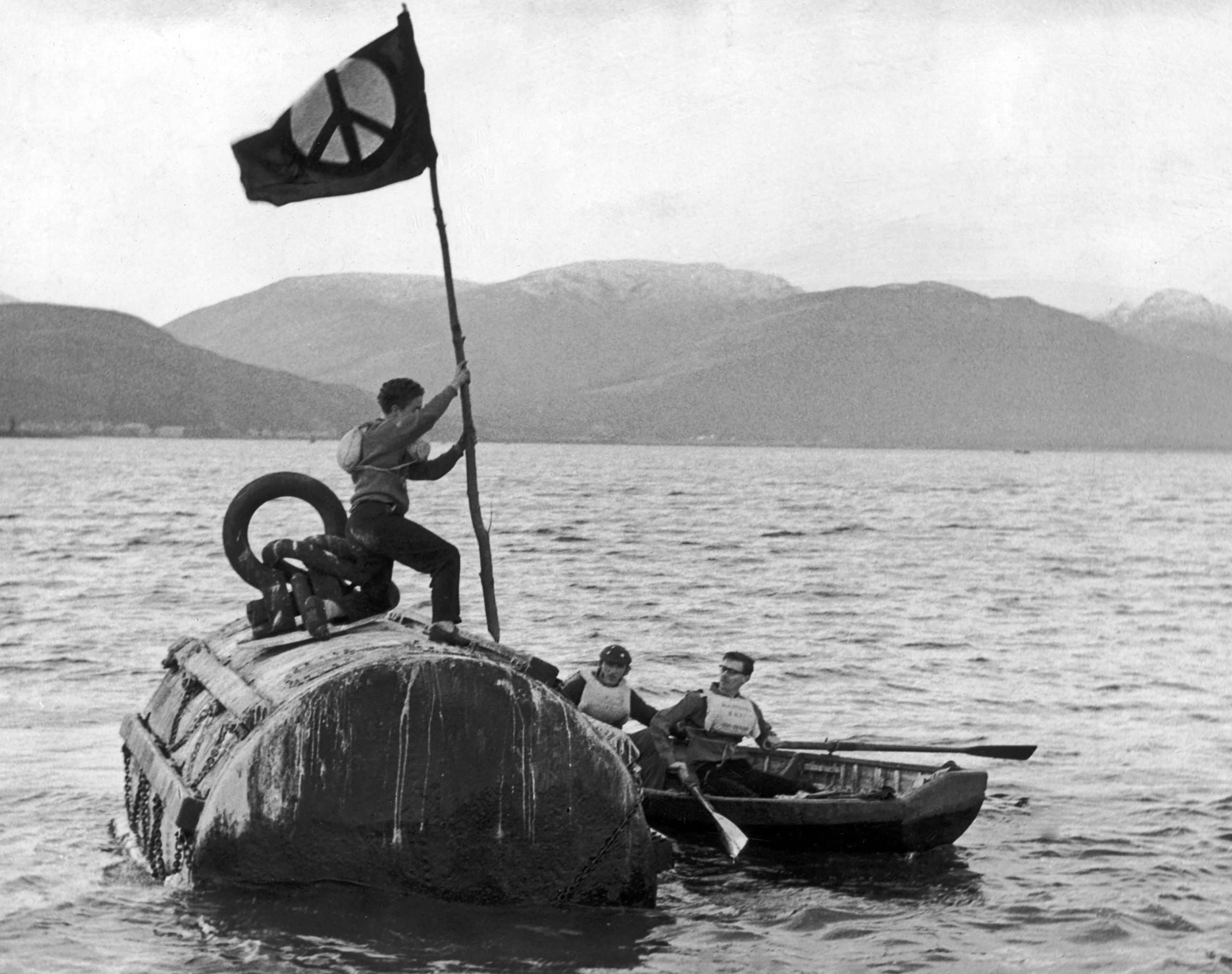A new exhibition at the National Museum of Scotland explores Scotland’s critical position on the frontline of the Cold War. Over 190 objects, many on display for the first time, will be brought together in Cold War Scotland (running to 26 Jan 2025) to tell the stories of the Scots at the centre of this global conflict. Scotland’s unique geography and topography provided a useful base for Allied military preparations and research during the Cold War, a 40-year nuclear stand-off between the USA and the Soviet Union following the end of the Second World War. Atomic power brought jobs and investment to some of the country’s most remote areas, but as global tensions mounted the threat of attack or nuclear disaster became part of everyday life. Now on, Cold War Scotland will explore both the visible and invisible legacies of the war in Scotland.
The impact of the war still lingers in Scottish politics, culture and memory. Scots played an active role in the global conflict as soldiers, for example, within intelligence services and as part of voluntary civil defences. The exhibition will also draw on Scotland’s rich history of Cold War-era protest and activism. Firsthand accounts include a young mother who decorated her daughter’s pram with Campaign for Nuclear Disarmament (CND) badges. A rattle made from an old laundry detergent bottle emblazoned with the CND logo was given to her baby during the Peace Marches of the early 1980s and will go on display in the exhibition.
The exhibition will also reveal the physical remains of the Cold War; the ruined bases, forgotten bunkers and decommissioned nuclear power stations still evident across the Scottish landscape. This infrastructure became part of the fabric of local communities, none more so than the US-controlled radar base at Edzell in Angus, now commemorated with its own bespoke tartan.
Cold War heritage

Dr Meredith Greiling, Principal Curator of Technology at National Museums Scotland, said: “From nuclear submarines to lively peace protests and observation stations perpetually monitoring for devastating attack, the Cold War permeated every aspect of life in Scotland for decades. This conflict is so often remembered on a global scale, but this thought-provoking exhibition will offer a Scottish perspective of the period, allowing Scots from all walks of life to tell their remarkable stories for the first time.”
Further highlights of the exhibition include artwork from Glasgow’s 1951 Exhibition of Industrial Power and a toy nuclear power station, operated by steam and hot to the touch when played with. Both these examples highlight the spirit of optimism, progress and modernity associated with atomic energy in postwar Britain. In contrast, a Geiger counter used by farmers in East Ayrshire to test for radiation in sheep following the Chernobyl Disaster illustrates the enduring but unseen impact of the Cold War on Scotland’s landscape.
Cold War Scotland is an output of Materialising the Cold War, a collaborative research project between National Museums Scotland and the University of Stirling. The project explores how the Cold War heritage is represented and how museums can adapt to tell this story in future. Materialising the Cold War is funded by a major grant from the Arts and Humanities Research Council.
Cold War Scotland runs to 26 January 2025 at the National Museum of Scotland, Chambers Street, Edinburgh, admission is free. For more information: www.nms.ac.uk/ColdWarScotland.
Main photo: Polaris Demonstration at Holy Loch, 3rd Feb 1961 Image Trinity Mirror Mirrorpix Alamy Stock Photo.

